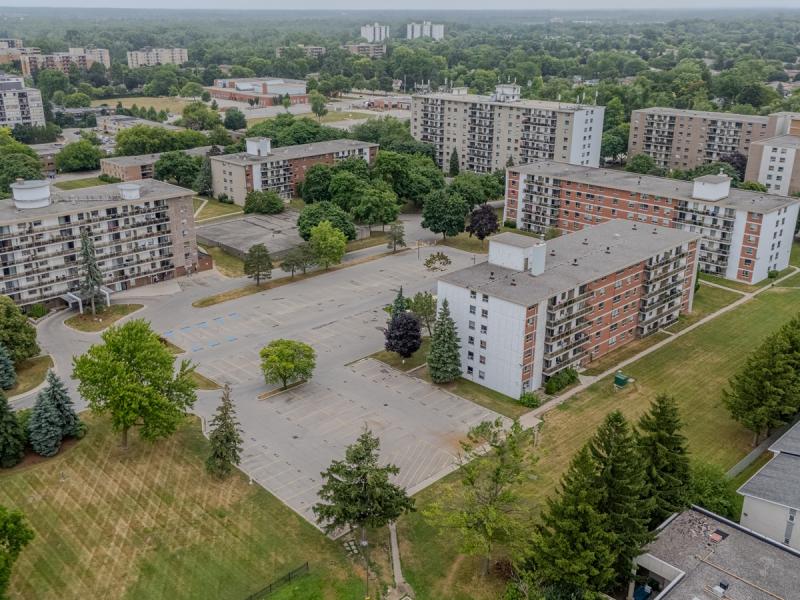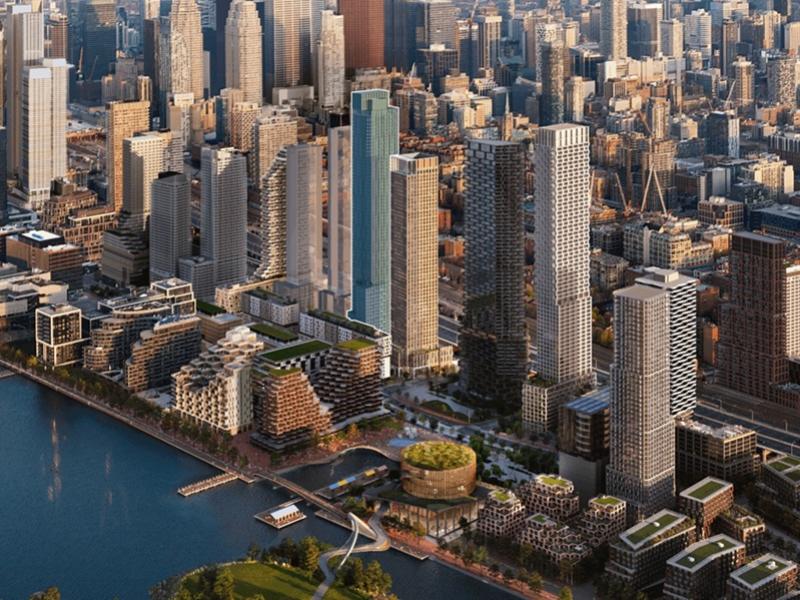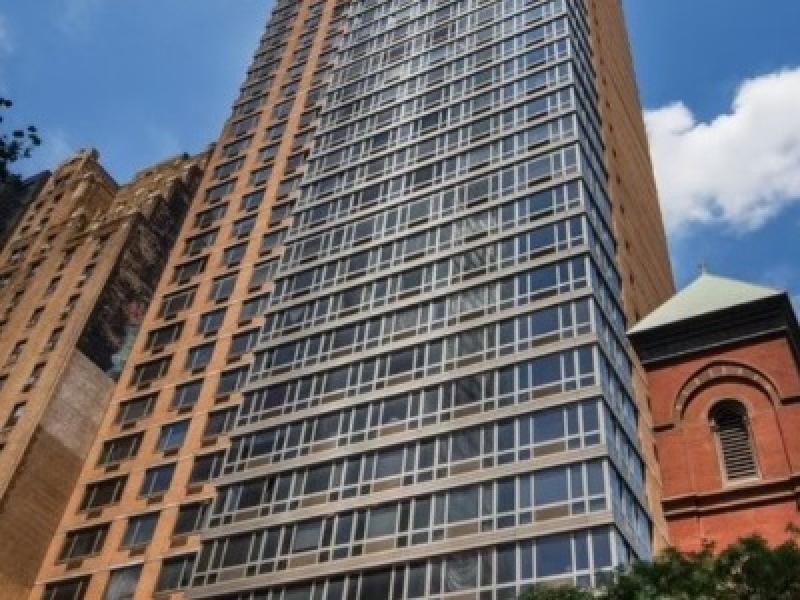
Ben Myers of Bullpen Research and Consulting.
Fifty-one apartment and condominium land transactions took place in the Greater Toronto Area (GTA) in the first quarter of this year, well above the norm of 30 to 35 such trades.
“In the first quarter the new condo market in the GTA was as hot as it’s ever been,” Bullpen Research & Consulting Inc. president and owner Ben Myers told RENX. “So it makes sense that developers and investors are out buying high-density properties for future development.”
Myers compiled the new GTA High Rise Land Insight Report Q1-2022 report with Paul Demczak, principal of land use planning and project management firm Batory Management.
The properties sold for $112 per buildable square foot on average, a slight increase from the previous quarter’s $110. The average property sold for $27.7 million for 1.86 acres.
Land to revenue ratios
The average GTA land-to-revenue ratio was 8.8 per cent, compared to 9.9 per cent in 2021.
“Land-to-revenue ratio gives a general idea of how much developers are paying for land based on today’s revenue numbers,” said Myers, who noted the ratio has been around 10 per cent for several years, so the first-quarter number was a little lower but not too far from the norm.
Properties in the 416 area code sold for an average price per buildable square foot of $124, with an average land-to-revenue ratio of nine per cent.
“I don’t think there are any significant changes in the downtown market,” said Myers. “I think people remain confident that ‘A’ locations will be ‘A’ locations in the future and it’s not easy to buy land and get it approved.”
Properties in the 905 area sold for an average of $69 per buildable square foot with an average land-to-revenue ratio of six per cent.
Land prices haven’t risen much
Land prices haven’t increased significantly and Myers offered several reasons why developers may be reluctant to go too high with offers.
“We’re at a record number of sales and a record number of sales means a record number of projects going under construction and labour costs going up.
“Add that to development charges going up and inclusionary zoning for the sites that are in the predetermined area, and there are some new parking requirements and bath-tubbing requirements that some people are saying could add $10 per square foot to the cost of building a project.
“All things are pointing to a lot higher costs moving forward, so developers can’t be as aggressive with their land buying. Another factor is interest rates. The cost to carry these properties is going up as well.”
High-density lands sold for $166 per buildable square foot in the pre-amalgamation boundaries of the former City of Toronto, with North York at $116, Etobicoke at $72 and Scarborough at $53.
Farther out in the suburbs, lands in Oakville sold for $84 per buildable square foot, while Vaughan sold for $65, Pickering sold for $41 and Burlington sold for $35.
“The only thing that’s significantly changed over the past 18 months or so has been the massive success of projects in the outer 905 areas,” said Myers. “We’re talking about (condo) projects in Clarington, Halton Hills, Milton and Newmarket selling for $900 to $1,000 per square foot, if not more.
“It’s giving developers a little more confidence in making land purchases in those markets for high-density product that they may have shied away from in the past because they were unknown marketplaces.
“Investors are looking at prices downtown, which have gone from $1,400 to $1,600 a foot in the last year, and seeing value in Milton or Newmarket at $1,000 a foot or Whitby at $900 or $925 a foot.”
An increase in people working from home could be a deciding factor in why investors are honing in on outlying areas, because people can live there less expensively.
Mid-rise development sites in Toronto, North York and Scarborough had price-per-buildable-square-foot averages of $211, $124 and $55, respectively. Land sales suitable for high-rise developments in the same three markets had price-per-buildable-square-foot averages of $116, $108 and $52, respectively.
Bullpen and Batory estimated sites without active development applications or pre-application land sales sold for $168 per buildable square foot in the former City of Toronto, while zoning-submitted sites sold for $115 and zoning-approved sites sold for $204.
Transactions expected to slow
After the hot start in the first quarter, Myers believes the frequency of transactions will slow this year.
“There’s so much under construction and there have been so many sales and so many projects already purchased that I think some developers will work their way through what they already have on their plates, in terms of what they already have under construction or in their pipeline.
“And there’s an additional level of uncertainty.
“We’re already seeing a softness in the resale market, where pricing is down 10 to 15 per cent from February.
“It went up 20 per cent from November to February so you’re really just giving away some of those gains from earlier in the year, but the new home market tends to lag the resale market by three or four months.
“What’s happening in the resale market tends to hit the new home market a few months later.
“I’m already hearing about a bit of a slowdown in the new condo market, but that’s coming off of the ridiculousness that we’ve experienced in 2021 and early 2022, where everything was selling in a matter of months.
“The market probably requires a little bit of a reset because there are only so many construction workers to work on these projects and pricing can only go up so quickly.
“Eventually these investors need to sell their units to end-users or rent them to end-users so there needs to be some connection to affordability in the marketplace.”
Rents expected to increase
Myers said rents have flattened a bit so far in 2022, but he expects an eight to 10 per cent increase by year’s end.
“It’s still going strong in the downtown core, specifically with condos. Condos for rent were hit the hardest during the pandemic, where downtown rents went down by 20 to 30 per cent. It was an unprecedented decline, but it’s all coming back.”
As things have opened and tourism has picked up, it’s believed some condo units are being rented through Airbnb and other similar services, even though they’re not supposed to be, which is taking some supply from the market.
Rising interest rates are taking some potential condo buyers out of the market, or at least putting purchasing decisions on hold.
“Layer on immigration and the cohorts of workers that probably should have started their first job in downtown Toronto two years ago, who are now moving out from their mom and dad, or their college town into Toronto to start that first job,” said Myers.
“I think there’s going to be a lot of demand for rentals moving forward.”











